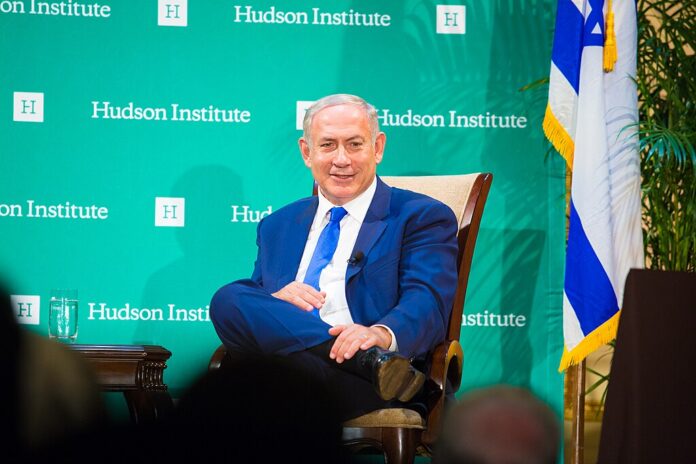Leaders push for immediate talks to end war, release hostages; regional tensions mount amidst escalating conflict
On Thursday, President Joe Biden, Egyptian President Abdel Fattah el-Sisi, and Qatari Emir Sheikh Tamim bin Hamad al-Thani jointly announced their commitment to present a “final” cease-fire proposal aimed at ending the devastating war in Gaza. The three leaders declared that it is imperative to finalize a cease-fire agreement and secure the release of hostages held by Hamas and Palestinian detainees held by Israel.
In a united statement, Biden, El-Sisi, and Al-Thani emphasized the urgency of resuming negotiations, stating, “The time has come” to address the conflict and implement a comprehensive deal. They urged both Israel and Hamas to convene in Cairo or Doha by next Thursday to discuss the terms of the cease-fire and related issues.
Embed from Getty ImagesThe cease-fire discussions have been stalled since a meeting in Cairo last weekend yielded no progress. The situation became more complicated with the recent assassination of Hamas’s political leader, Ismail Haniyeh, in Iran. Haniyeh’s death, which occurred while the U.S. was pushing for a breakthrough in the negotiations, has frustrated President Biden, who had hoped the talks were nearing resolution.
In response to the joint statement, Israeli Prime Minister Benjamin Netanyahu indicated that Israel would participate in the proposed meeting. However, Netanyahu’s commitment remains uncertain as his own security officials have criticized his handling of the negotiations. They argue that Netanyahu’s reintroduced demands are impeding progress, while Netanyahu has blamed his officials for poor negotiation tactics.
Hamas’s readiness to engage in talks is also in question. The group, which has yet to respond to the joint statement, faces internal uncertainty following Haniyeh’s assassination. Yahya Sinwar, a key figure behind the October 7 attacks on Israel, has been named as Haniyeh’s successor but is believed to be in hiding, complicating the potential for a coherent negotiation process.
A senior Biden administration official noted that the final proposal could resolve remaining implementation issues, including the sequencing of hostage and prisoner releases. The official suggested that while some issues might be resolved with sufficient will, the upcoming meeting would likely only mark the resumption of talks rather than the finalization of the agreement.
The Hostages and Missing Families Forum, representing many of the families affected by the conflict, welcomed the international leaders’ call for a cease-fire. With approximately 115 hostages still in Gaza, the forum emphasized the urgency of reaching a deal to secure their release.
The push for renewed talks occurs amid heightened regional tensions following the assassinations of Haniyeh and Hezbollah commander Fuad Shukr. Both Iran and Hezbollah have pledged retaliation, prompting the U.S. to bolster its military presence in the region to support its ally, Israel. President Biden and Defense Secretary Lloyd J. Austin have reinforced U.S. support for Israel while urging caution to avoid a broader regional conflict.
Analysis
Political
The proposed cease-fire talks come at a critical juncture in the ongoing conflict between Israel and Hamas. The involvement of Biden, El-Sisi, and Al-Thani underscores the high level of international interest and pressure to resolve the situation. The U.S., Egypt, and Qatar’s push for a final proposal reflects a concerted effort to bring both parties back to the negotiating table. However, internal political dynamics in Israel and Hamas, including Netanyahu’s controversial decisions and Haniyeh’s assassination, complicate the path to a resolution. The outcome of these talks will significantly impact regional stability and the international community’s role in peace efforts.
Social
The conflict and the potential cease-fire agreement highlight deep social divides and humanitarian concerns. The ongoing violence has led to widespread displacement and suffering among civilians, particularly in Gaza. The joint statement’s call for a cease-fire and hostage release is a response to these humanitarian crises, aiming to address the immediate needs of affected populations. The situation reflects broader social challenges, including the impact of prolonged conflict on daily life and the struggle for basic necessities amid ongoing violence.
Racial
While the conflict primarily involves national and political dynamics, it also intersects with racial and ethnic issues. The violence disproportionately affects Palestinian civilians, raising concerns about the humanitarian impact on a predominantly Arab population. The international community’s response, including statements from leaders and organizations, reflects an awareness of the racial dimensions of the conflict. The push for a cease-fire addresses these concerns by seeking to mitigate further harm to vulnerable communities.
Gender
The gendered impact of the conflict is evident in the experiences of women and children in Gaza. Women and children often face heightened risks during conflicts, including violence and displacement. The joint statement’s emphasis on humanitarian concerns and the need for a cease-fire implicitly acknowledges these gendered impacts by prioritizing the protection and well-being of affected civilians. The broader peace efforts aim to address these issues by seeking to end violence and provide relief to those most affected.
Economic
The economic repercussions of the conflict are significant, both for the region and the broader international community. The ongoing violence disrupts local economies, exacerbates poverty, and strains resources. The proposed cease-fire and humanitarian measures aim to alleviate some of these economic burdens by halting the destruction and displacement that impact economic stability. The international focus on a cease-fire reflects the economic stakes involved in achieving a resolution and supporting recovery efforts in the aftermath of the conflict.
